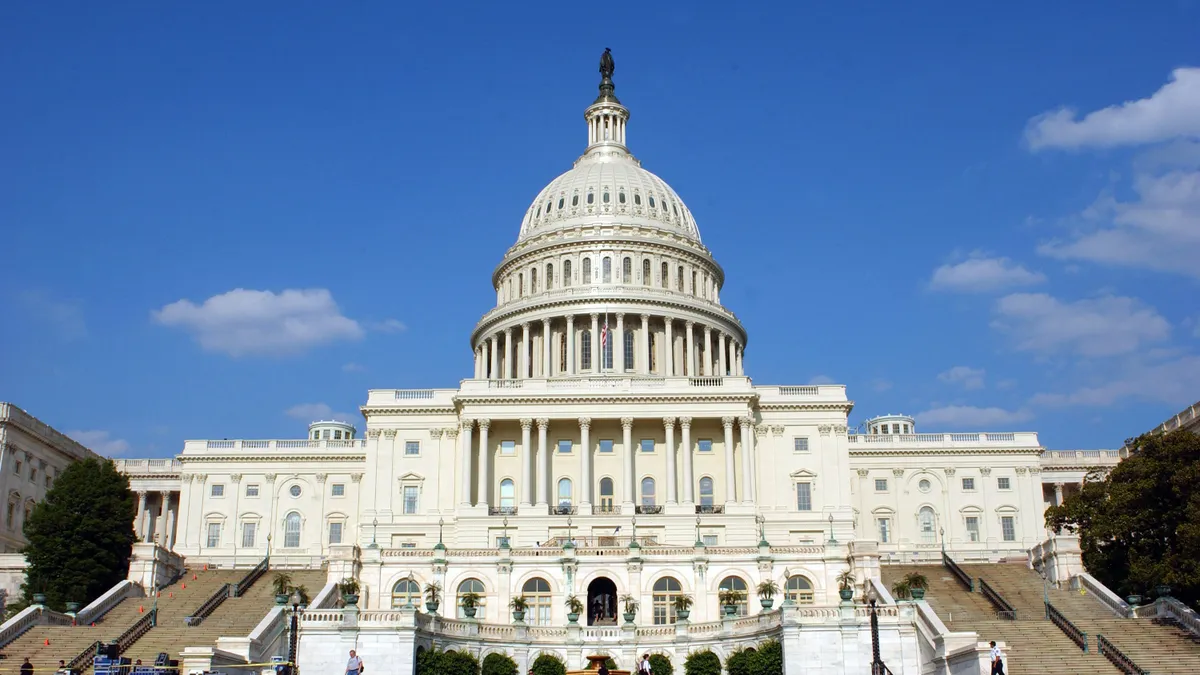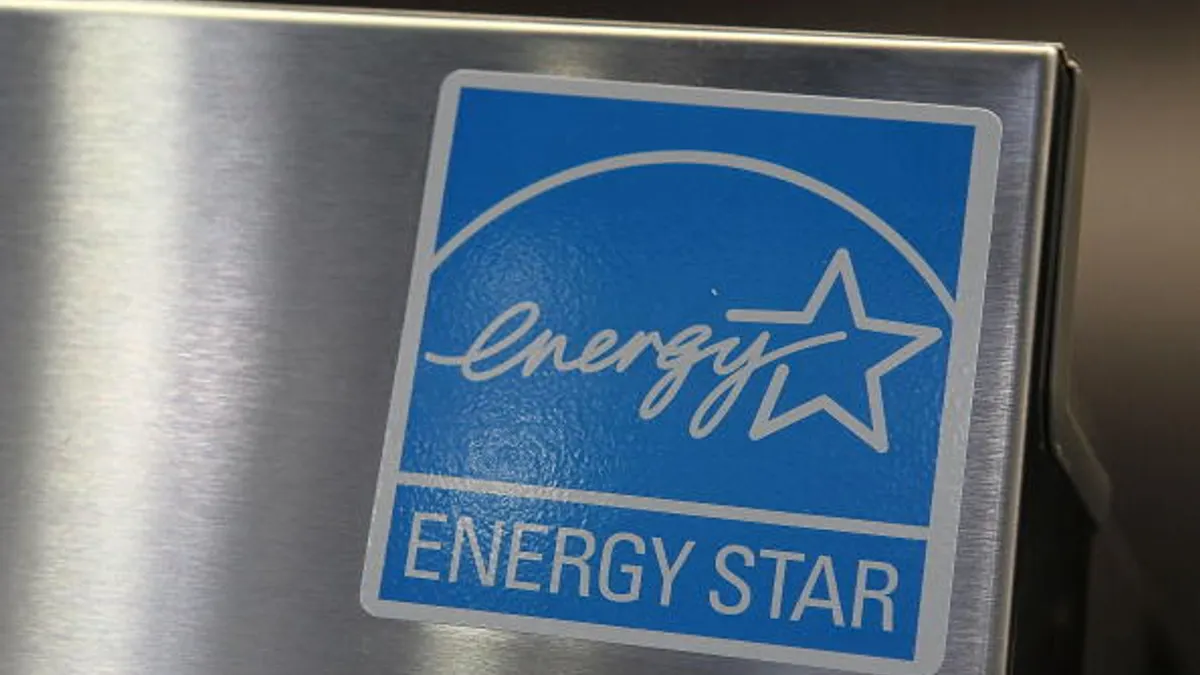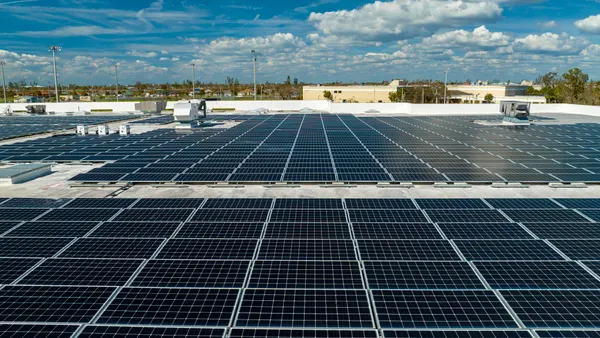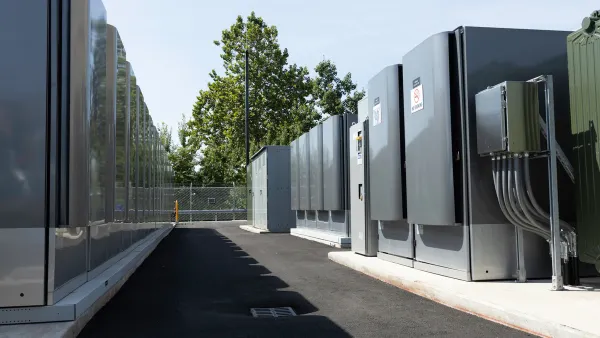Dive Brief:
- The Biden administration must champion additional incentives to help improve energy efficiency, meet climate goals and ensure an equitable transition to a clean energy economy, advocates told lawmakers on Thursday during a hearing of the House Select Committee on the Climate Crisis.
- Democrats are considering a slimmed-down version of the Build Back Better reconciliation package, which they previously failed to advance in the Senate. An energy-focused version could include efficiency tax credits and the bipartisan Hope for Homes Act, which would provide training for energy-saving retrofits for home builders and contractors.
- But the hearing ultimately shifted away from efficiency and towards global events, domestic gas policy and how to manage international foes like Russia and China.
Dive Insight:
"There's not a member of this committee that doesn't support energy efficiency. It's good for the consumer and it's good for the environment," Rep. Kelly Armstrong, R-N.D., said during Thursday's hearing.
Armstrong then used his time to make the case for additional natural gas infrastructure and to oppose "mandates" that might force consumers to choose electric appliances over gas-powered versions. That opened the door for American Public Gas Association President and CEO Dave Schryver, a witness in the hearing, to make the case for greater inclusion of gas appliances in the Energy Star efficiency program, and for local governments to not ban new gas hookups.
"If politicians force fuel switching on natural gas customers, those households will not only face higher energy bills but will also have to shoulder the additional cost of expensive new appliances and potential electrical system upgrades to support them," Schryver said.
Alliance to Save Energy President Paula Glover and other witnesses, however, continued to press for greater electrification. Energy efficiency investments made since 1980 help consumers avoid approximately $800 billion per year in energy costs today, she said.
"That is the power of efficiency. This is achieved by investments that secure the building envelope, equipment standards, building codes, building design, and establishing policies that prioritize efficiency as a primary part of U.S. domestic policy," Glover said.
Glover asked lawmakers to extend the 25C tax credit to assist homeowners in purchasing energy efficiency equipment or making other energy-saving upgrades, along with the 45L credit for home builders who build more energy-efficient homes, and strengthen and expand the 179D deduction for efficiency improvements in commercial buildings.
And the bipartisan Hope for Homes Act would help provide training and support to home building companies and stipends for contractors to undertake training and education about residential energy systems, Darnell Johnson, vice chair of the Building Performance Association and CEO and President of Urban Efficiency Group, told lawmakers.
"These stipends will also support individuals who have changed careers during the pandemic or due to changes in the economy," Johnson said. "To address climate change, America’s homes must use energy more efficiently."
But Ranking Member Garret Graves, La., questioned why the United States would spend more to save energy and reduce emissions when other countries are not doing the same. He cited rising emissions in China, and fears that a lack of gas infrastructure in the U.S. could lead to dependence on Russian supplies.
"How does the United States move forward with some of these actors like Russia and China and others who just don't care?" Graves asked.
"That's likely the million-dollar question," Glover replied. The United States should continue to invest in clean energy and efficiency because it makes economic sense, she added. "What you would hope, is that other economies would follow suit. And that may be the best that we can do."
Graves later asked a lengthy question that touched on Vladimir Putin, "pixie dust" technologies like wind and solar, rare earth minerals for batteries, rising energy demand, and the need for domestic production. The hearing ended with the witnesses sitting in silence, declining to answer.














